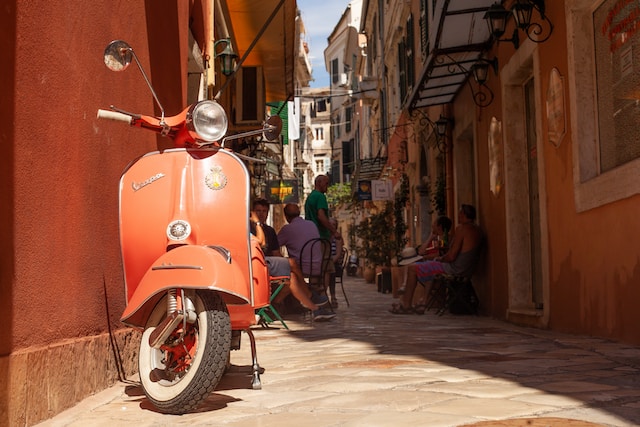Belize stands apart from Latin America with its distinctive cultural identity. A crossroad of African and European descendants, Creoles, Mestizos, Mayans, Garifunas, Chinese East Indians Mennonites and Lebanese make up Belize’s population.
Belizean culture combines Caribbean flair with British formality; for instance, many Belizeans prefer shouting greetings or fist-bumping instead of shaking hands when greeting each other.
Belize Cultural Norms: A Diverse Melting Pot
Belize is often described as a melting pot, as its residents comprise people from many diverse cultures and ethnicities. More than half the population are descendants of Mestizo (Spanish-Mayan descent); Creoles; Garifunas and Chinese and German-speaking Mennonites also account for significant portions of the population.
Belize’s rich blend of cultural norms can be seen through music, food and traditions. Garifuna culture is commemorated annually on National Garifuna Settlement Day to recognize their arrival as descendants of African slaves and native islanders in the Caribbean. They now rank among Belize’s foremost cultural groups renowned for authentic dishes, traditional music and dance as well as vibrant communities.
Many Belizeans are Christian, though each ethnic group holds its own views about afterlife and spiritual matters. Many Belizeans still use traditional medicine such as herbs and plant remedies, baths, incantations and rituals to heal illnesses; similar beliefs also influence death ceremonies.
Belizeans tend to be warm, welcoming people with an easygoing demeanor that often spills over into conversation. Dress is casual; revealing clothing is usually not permitted in restaurants or churches. Women traveling alone may receive advances from local men; ignoring such attentions will only make them more persistent – walking away while flashing a smile and wave should usually dissipate them.
Belize’s attitude to punctuality can vary considerably from yours; therefore it is wise to allow some leeway when planning meetings and appointments. Bus schedules are rarely advertised or adhered to strictly, so it should come as no surprise if your trip takes longer than planned.
Belizeans tend to speak multiple languages, including English, Spanish, Creole and local indigenous tongues such as Kriol or Maya. Belize has been transformed by immigrants from all over the globe who have contributed their unique voices to shape its unique identity.
Warm Hospitality: Welcoming Visitors to Belize
Belize and its people offer an unmatched sense of hospitality to visitors, making visitors feel right at home in their country. Locals go out of their way to show visitors around and show them favorite spots around town or along the beach; they will make sure you have everything necessary, whether that is food, drink or transport back to the airport – they take great pride in sharing all their country has to offer!
Drama, song and dance are part of their cultural tradition, while public holidays rooted in their history are observed with great fervor. Furthermore, they are known for creating handicrafts such as wood carving of animals and bowls from wood, ceramics engraving onto slate slates and basket and cloth weaving – it has even become a popular pastime to visit villages where these crafts are created!
Even without formal education, Belizeans are highly knowledgeable of their culture and customs. Most can speak two or more languages fluently and use this knowledge to help visitors gain a greater insight into Belize. When visiting, visitors should strive to remain polite; however, Belizeans don’t shy away from sharing their opinions on sensitive subjects.
Marriage and family practices vary among the nation’s many ethnic groups. For instance, Garifuna peoples hold an intriguing funeral tradition that involves drumming and dancing at funeral services. Furthermore, due to high rates of illegitimacy among their population, extended families play an essential role in both childrearing and general support services.
Belizeans tend to be Christians and adhere to Christian etiquette, with greetings being casual and kissing among couples being appropriate, yet public displays of affection are frowned upon. Belizeans are very welcoming of children, often making time to interact with young travelers when traveling alone; unlike some Latin American countries, they tend to allow children more freedom than usual to explore freely, though parents should remain cautious when sending them alone into unfamiliar areas.
Family Values: Strong Bonds and Respect
Belize is known for being a culture where family is of high significance, and thus many Belizeans prefer living close-knit families. Due to the small country size, everyone knows each other which allows for stronger community ties. Though close bonds between family members may sometimes lead to miscommunications and misunderstanding, most Belizeans tend to be understanding when it comes to matters related to family matters.
As is common across Latin American nations, Belize has long been marred by interethnic marriages between its different ethnic groups – most significantly between Creoles (descended of African slaves) and Mestizos, who are Mayan/Spanish/Afro-Indigenous peoples. Although Belize’s government has made efforts to avoid being labeled ‘Latin America,’ demographic shifts are altering this landscape: Creoles now make up only 25 percent of the population while Mestizos now account for over 50 percent.
Mestizos and most Belizeans, with women still underrepresented, are better integrated into the political system than Creoles; however, Mestizos remain less well represented than Creoles and most other Belizeans in politics. Belize’s judiciary remains relatively independent despite attempts by business and political interests to influence judges’ composition; furthermore, safeguards will be implemented by the new government to guarantee its independence.
Belize’s music is closely associated with percussion instruments, particularly drums. While Garifuna musical traditions rely heavily on drumming for rhythmic accompaniment, contemporary genres are also enjoyed and appreciated in Belize. Religion in the country can vary considerably and same-sex couples generally do not experience discrimination here.
At events, men typically greet each other verbally or with a handshake while women typically greet one another by kissing or touching shoulders; some also use brief cheek-to-cheek contact or embraces depending on their relationship with the person being welcomed. Following a meal it is customary to leave some food on your plate as a gesture of respect for your host; waiting until he/she has started eating before taking your bite may also be observed etiquette, similar to Australia and some European nations.
Relaxed Pace of Life: Embracing “Belizean Time”
Belizeans are Caribbean people at heart and, like their island motto of “Go Slow,” take life leisurely – taking long afternoon naps in hammocks, sipping rum punch on the beach and dancing to reggae and calypso music.
Although English is the official language of Belize, Spanish is widely spoken and Belizean Kriol, an amalgamation of African, Latin American, and indigenous cultures, can also be heard widely spoken throughout. Most Belizeans speak at least two of these languages fluently.
Belizeans enjoy strong connections with both their Caribbean neighbors and America. Reggae music and its brukdown form of calypso are highly popular here, though many listen to US hip hop and rap as well as watch American movies and television series thanks to an abundant expat community.
Education in Belize is of great value and while only about one percent of its population can access higher education, most children attend secondary school before transitioning to either community college or university studies – receiving substantial government support in terms of funding for their higher education journey.
Religion is an integral component of Belizean culture, with churches of various denominations playing an essential role. Most Belizeans identify as Christian, most commonly Roman Catholics or Anglicans. Some Maya practitioners practice shamanism while Garifuna adherents follow their own religious faith.
Belize may seem strange to visitors at first, but these traditions contribute to its unique culture. By understanding these local customs and norms, travelers can avoid offending Belizeans unwittingly while understanding local etiquette will allow you to feel more at home in this friendly Caribbean nation.




